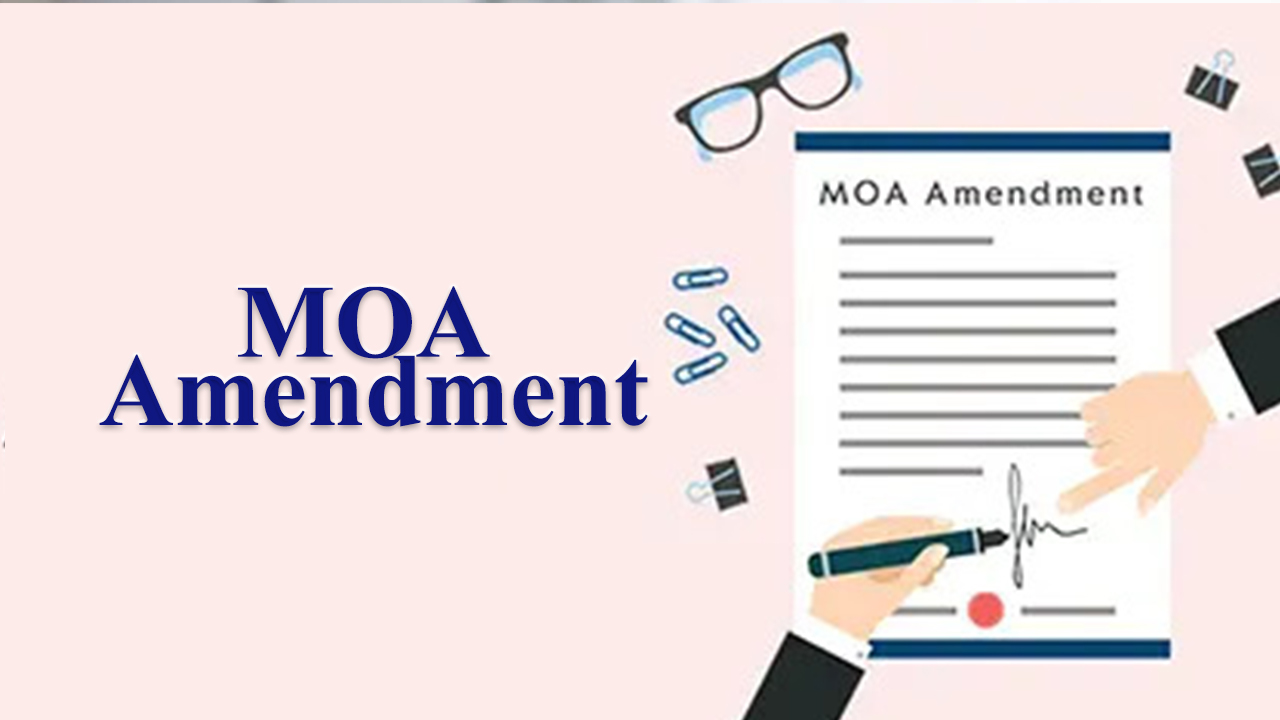Private limited company
A Private Limited Company is a closely held company, incorporated for businesses at small scale.
Service Overview
The Private Company should have at least Two (2) directors. A Private limited company should have minimum 2 shareholders and maximum 200 shareholders excluding the members who are in the employment of the company or formerly in the employment of the Company. The liability of the members of a Private Company limited by shares is limited to the extent of the unpaid amount of the equity shares held by them. As per the Articles of Association of a Private limited company, the shares of the private limited company have trading restrictions and hence cannot be traded publicly.
In addition to the professional fee charged by Indian MSME Helpline, client have to bear the Government fees, stamp duty, cost of Digital Signature and other cost incidental thereto.
Cost of Digital Signature, Government Fees and Stamp Duty, if any, is payable by the client in addition to the Professional Fee being charged by indian MSME Helpline.
Our Package includes the followings:
- ESIC & EPF Registration
- Name Approval
- Director Identification Numbers 2 nos
- GST Registration
- Incorporation Certificate
- MSME Registration (Complimentary)
- Current Account Opening
- PAN & TAN
Brief Process
- Step-1: Foremost step is to apply for name reservation of proposed company via Form SPICe – Part A. For name approval, main division of industrial activity code and summary of objects to be persued by the proposed company are to be described along with 2 proposed names is to be entered in Form SPICe – Part A.
- Step-2: Apply for Digital Signatures (DSCs), these are mandatory requirement to the incorporation forms, which is to be filled and uploaded online on MCA Portal.
- Step-3: Once the name of the company is approved (resevered), other forms are to be filled in and uploaded within 20 days of receipt of name approval letter.
- Other forms include filling of Form SPICe –Part B, AGILE, e-MOA and e-AOA.
- Step-4: Upon Completion of forms, these are to be digitally signed and uploaded on MCA Portal.
- Step-5: Once forms are uploaded, challan is to be paid as fee for Application of PAN and TAN, and fee for stamp duty which differs from state to state in which the company is being incorporated.
FAQ
A Private Limited Company is a company which is closely held for small businesses by at least 2 directors. Shares of Private Limited Company cannot be publicly traded on stock exchange. Minimum shareholders should be 2 and maximum have been restricted to 200 as per Company Laws
Yes, a small business can get its business registered as a Private Limited Company in India. It provides them with credibility in the eyes of the stakeholders be it financial institution, suppliers or potential clients.
No, no such requirement has been mentioned under any law to act as director or shareholder of the company. Any person, being an individual with a sound mind, can start the company.
As per Current laws, any person who is
-
Of sound mind
-
Major in age
-
Citizen or resident in India
-
Qualifies under the provisions of the Companies Act,2013
-
And, the members of the board should agree to the appointment of the new director
DINis the Director's Identification Number, issued by the Registrar of Companies (RoC). This is a unique number being assigned to any person who is a director in a company or was a director in previous years. It usually takes 3-4 days to get DIN. Once DIN is allotted, it can be used for the lifetime of the director.
The Registered Office of the company is not to be mandatorily owned by any of the directors or the shareholders of the company, it can be incorporated on the rented premises also
The registered office is being used for the purpose of holding the general meetings, keeping records and for future correspondence for communications by all the statutory government timely.
Yes, sole proprietorship business can be converted into Company upon completion or protocols as defined in Companied Act, 2013.
- Advantages:
- Since, it is separate legal entity, the assets and liabilities of companies are different from those of directors.
- Also, the liability of shareholders (also known as members of company) is limited only to capital shareholding held by them. If the company undergoes any debt, then the personal assets will never be used for paying off such debts.
- As per laws, the Private Limited Company separates its ownership from management. Therefore, the management is responsible for smooth functioning of business operations, whereas shareholders enjoy the benefits of ownership.
- It is easier to transfer shares to any other person because it is not traded on any stock exchange. Filing and signing a share transfer form and handing over the buyer of the shares along with share certificate can easily transfer shares
- The particulars of the company are available on a public database; this improves the credibility of the company as it makes it easy to authenticate the details for stakeholders.
- It provides creditability to businesses in the eyes of stakeholders, be it financial institutions, suppliers or potential clients while entering into deals.
Disadvantages:
- One of the main disadvantages is that it restricts the transferability of shares by its articles.
- The number of shareholders in any case cannot exceed 50.
- It cannot issue prospectus to public.
- Shares of Private Limited Company cannot be quoted on any stock exchange.
Yes, sole proprietorship business can be converted into Company upon completion or protocols as defined in Companied Act, 2013.
There is no monetary limit for Private Limited Company, it only exists for One Person Company (OPC)
Yes, foreign entities/ individuals can act as Director or shareholder in any Private Limited Company incorporated in India, upon completion or protocols as defined in Companied Act, 2013
Ministry of Corporate Affairs has introduced a new form called the SPICe. Along with this AGILE, e-MOA and e-AOA are to be filed.
No, since it is a closely held company, it is not allowed to issue any prospectus to the public seeking funds or invites for shares.
Minimum of 2 directors and a maximum of 15 directors can be appointed in Private Limited Company.
Yes, it is allowed.
- Following documents are required:
- Self-attested copy of PAN card of the proposed Directors;
- Self-attested copy of identity proof (Voter Id/ Passport/ Driving License) of the proposed Directors;
- Self-attested copy of residential address proof (Bank Statement/ Electricity Bill/ Telephone Bill/ Mobile Bill) of the proposed Directors;
- Passport size photograph of the proposed Directors;
- Proof of ownership and Utility bill (Electricity/ Telephone/ Gas/ Water) along with No-Objection Certificate, or Notarized Rent Agreement.
Mandatory ROC compliance for a Private Limited Company includes:
-
Form ADT 1: First Auditor of the company shall be appointed by the BOD within 30 days of Incorporation who shall hold the office till the conclusion of 1st AGM.
-
Form MGT 7: Form MGT-7 must be filed by all companies registered in India every year. It is an electronic form to fill in their annual return details. The due date for filing MGT-7 is within 60 days from the date of Annual General Meeting.
-
Form AOC 4: Every Private Limited Company is required to file its Balance Sheet along with statement of Profit and Loss Account and Director Report in this form within 30 days of holding of Annual General Meeting.
The above forms needs to be certified by CA/CS/CWA.
Yes, whether it is newly incorporated or an established Private Limited company, it is the mandatory compliance to have company’s account audited. Non- compliances attract heavy penalties.
Perpetual Succession
As per laws, the Private Limited Company separates its ownership from management. Therefore, the management is responsible for smooth functioning of business operations, whereas shareholders enjoy the benefits of ownership.
Limited Liability
Since, it is separate legal entity, the assets and liabilities of companies are different from those of directors.
Easy Fund Raising
It is easier to transfer shares to any other person because it is not traded on any stock exchange. Filing and signing a share transfer form and handing over the buyer of the shares along with share certificate can easily transfer shares
Separate Legal Existence
Also, the liability of shareholders (also known as members of company) is limited only to capital shareholding held by them. If the company undergoes any debt, then the personal assets will never be used for paying off such debts.
Documents Required
- Details on shareholding of proposed company
- Self-attested copy of residential address proof (Bank Statement/ Electricity Bill/ Telephone Bill/ Mobile Bill) of the proposed Directors
- Description of business activity of the proposed Company
- Self-attested copy of identity proof (Voter Id/ Passport/ Driving License) of the proposed Directors
- Self-attested copy of PAN card of the proposed Directors
- Proposed name of the Company
- Notarized Rent Agreement and Utility Bill (Electricity/ Telephone/ Gas/ Water) along with No-Objection Certificate, if the premises of the proposed address of the Company is rented
- Passport size photograph of the proposed Directors
- Details of the proposed Directors
- Proof of ownership and Utility bill (Electricity/ Telephone/ Gas/ Water) along with No-Objection Certificate, if the premises of proposed registered address is owned by any one of the director/ shareholder





.png)



.png)
